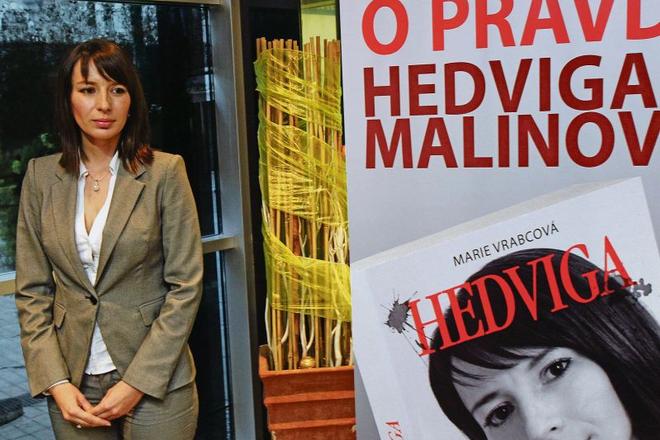THE CASE of Hedviga Malinová, which remains unresolved despite a police investigation which began in 2006 – and has in the process gained notoriety in the media both in Slovakia and abroad - was discussed by members of the European Parliament in Brussels on April 23. Malinová, who since the incident that sparked the investigation in 2006 has married and is now called Žáková, attended the hearing in person, seven days before she was supposed to undergo a mental examination ordered by prosecutors. The ostensible aim of the examination is to determine what her mental state was in 2006, when she was allegedly assaulted after being heard speaking Hungarian.
The meeting was organised by Slovak MEP for the Party of the Hungarian Community (SMK) Edit Bauer. It was attended by about 50 people, including 10 MEPs from various factions, assistants of MEPs, journalists and representatives of human rights institutions, as well as people from permanent representations of some EU member states, Bauer’s assistant Gábor Klenovics told The Slovak Spectator.
“After Professor [Peter] Labaš, under his own consideration, described my health condition to the media in detail, I cannot trust experts anymore,” Malinová said, as quoted in the press release, when explaining why she considers further psychiatric examination to be unacceptable. She was referring to statements made by Labaš, a doctor who was commissioned by the state to investigate her condition, but who concluded that she had not been assaulted. Photographs taken of Malinová at the time indicated that she had suffered relatively serious physical injuries.
Bauer said that the case is now more than a breach of minority rights.
“This is a clear violation of the fundamental human rights of a European citizen that the European Union cannot leave without [saying] a word,” Bauer said, as quoted in the press release.
Christian Democratic Movement (KDH) MEP Anna Záborská also backed Malinová, saying, as quoted in the press release, that as a doctor “I cannot agree with misuse of the medical profession as a pretext for artificial prolongation of a criminal investigation”. She added that the state should deal with people “with the maximum respect towards human dignity”.
Malinová’s “most fundamental freedoms are violated by being summoned to extended psychiatric examination in a mental institute without any justification”, said Hungarian MEP and deputy chair of the EP committee for civil liberties, justice and home affairs Kinga Gál, who was also present at the meeting, as quoted in the press release. She described this as “unacceptable” and said that it is “against all existing European norms and EU practices”.
Bauer added the mental examination will take place despite the fact that in March a group of psychiatrists from five countries said the case showed clear features of misuse of psychiatry. In their final report the experts stated that “further psychiatric and clinical examination is non-essential, unethical and can pose a serious risk for the re-developing of post-traumatic stress disorder”, Bauer said in the press release.
Bauer was referring to a psychiatry conference held in the western-Slovak spa town of Piešťany in early March this year. The psychiatrists there agreed that they would ask the World Psychiatric Association to examine Malinová’s case, unless Slovakia’s official bodies stopped demanding that she be subjected to further psychological testing, the Sme daily reported after the conference.
However, Jaroslav Paška, an MEP for the Slovak National Party (SNS), said that the hearing at the EP was not official since it was merely a closed discussion initiated by Bauer, the TASR newswire wrote on April 24. There is no official record of the meeting on the EP’s website.
The state’s case against Malinová
On August 25, 2006, Malinová, a Hungarian-speaking Slovak citizen, reported to police that she had been assaulted on her way to a university exam in Nitra. However, soon after then (and current) interior minister, Robert Kaliňák, publicly described Malinová as a “pathological liar”, and already strained relations between Slovakia and its southern neighbour Hungary grew tense over the handling of the case.
The investigation, which involved over 250 officers and 600 suspects, led the Slovak police to conclude on September 12, 2006, 15 days after the original report, that no attack had actually occurred. The police findings were communicated at a press conference by Kaliňák and then (and current) prime minister Robert Fico, at which Kaliňák said that “it is beyond doubt that the case did not happen”, supporting his assertion with several pieces of purported evidence, including DNA samples.
Malinová was charged in May 2007 with lying to police and making false claims, but in the intervening six years no case has been presented before a court. Meanwhile, Kaliňák has repeatedly called Malinová a liar, while her lawyer Roman Kvasnica has said that she intends to sue Kaliňák for libel.



 Hedviga Malinová (source: T. Somogyi)
Hedviga Malinová (source: T. Somogyi)